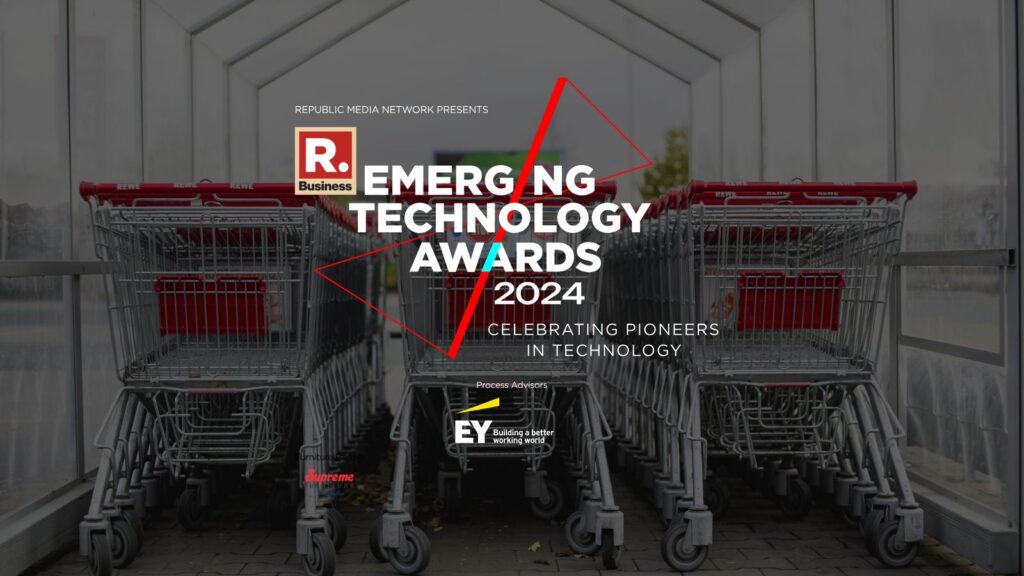RBETA 2024 | Image: Republic Business
Expansion of e-commerce: India's e-commerce sector is on a strong upward trajectory due to a combination of factors driving its growth trajectory. With a population of over 900 million Internet users, our country ranks as the world's second largest Internet market.
According to the IBEF e-commerce industry report, India's e-commerce industry is expected to reach $300 billion by 2030 and India's e-retail market is expected to cross $160 billion by 2028.
The industry is expected to grow as the proliferation of smartphones, increasing affluence, and availability of low-cost data are all driving the expansion of e-retail.
Celebrating the progress and forward-looking initiatives of the Indian e-commerce and retail industry, Republic Business is proud to announce the inaugural edition of Republic Business Emerging Technology Awards 2024 (RBETA 2024).
RBETA 2024 aims to recognize leaders who have reshaped the Indian e-commerce industry with their determined efforts and creative strategies. The event serves as a conduit to recognize and celebrate individuals and companies who are spearheading the transformation in India's fast-growing retail industry.
Online shopping becomes available to everyone
The main factor driving this growth is the comprehensive rollout of e-commerce across the country, with nearly 100% PIN code access to e-commerce delivery.
According to Invest India, more than 60 per cent of transactions and orders come from tier 2 cities and small towns, demonstrating the democratization of e-commerce beyond metropolitan hubs. Emerging markets now account for almost half of all shoppers and three out of every five orders on major e-retail platforms.
Contrary to conventional wisdom, data shows that the average selling price (ASP) in tier 2 and lower cities is only slightly lower than in tier 1/metropolitan cities. This trend highlights the strengthening of purchasing power in tier-2 cities and the evolution of consumer preferences in smaller cities.
Diversification of services
Dominated by electronics and apparel, which account for almost 70% of the e-commerce market's transaction value, the sector is seeing diversification into fast-growing categories such as edtech, hyperlocal services and foodtech. Home decor, cosmetics, baby products, smartphones, LED lights, fitness equipment, snacks, jewellery, etc. are some of the major categories driving online retail sales in India.
The launch of the Open Network for Digital Commerce (ONDC) by the Indian government in 2022 has given a major boost to this situation. ONDC is designed to provide equal opportunity for Micro, Small and Medium Enterprises (MSMEs) to grow in digital commerce. It aims to democratize e-commerce and foster inclusive growth. This initiative is in line with our broader vision to leverage digital platforms to empower grassroots businesses and bridge the digital divide.
According to Invest India, Indian e-commerce and consumer internet companies will raise a staggering $15.4 billion in private equity (PE) and venture capital (VC) funding in 2022 alone. , which doubled from $8.2 billion in 2020.
The influx of capital not only underlines investor confidence, but also means the sector plays a vital role in driving economic growth and innovation.
As India continues its digital transformation journey, the e-commerce sector is poised for further expansion and innovation. A burgeoning user base, evolving consumer preferences, and a supportive regulatory environment are poised for the continued rise of India's e-commerce landscape on the global stage.
Learn more about Republic Business Emerging Tech Awards 2024 here. click here.
To participate in RBETA 2024, click here.


